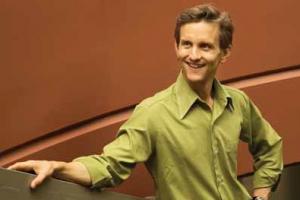
Google “Tim Howard SLDF” and watch your screen light up. No stranger to controversy, Howard is lead counsel for the Sierra Legal Defence Fund in BC, and his name makes the news. A lot.
In 2004, Howard intervened in the federal hearing for BC Hydro’s proposed Georgia Straight Crossing (GSX) pipeline, pushing for a mandatory greenhouse gas mitigation plan, and won his case.
“Before we got involved,” Howard said at the time, “climate change wasn’t even on the table. The panel’s decision is a major first for Canada.” Thomas Berger has joined forces with Howard’s team to fight the Sumas Energy 2 (SE2) project, a Washington-based power plant that the National Energy Board has deemed “not in the best interests of Canadians.”
Between these two cases, Howard says, “I have been receiving lots of calls from people involved in the [current] Mackenzie Valley Pipeline hearing … and essentially they’re seeking advice as to how to translate those decisions into the Mackenzie hearing.”
When it comes to advice about the environment, Howard doesn’t mince words: “I think climate change is the biggest challenge liberal democracies face because it asks us to examine every facet of our economic system,” he states. “Climate change is an ecological response to the unsustainable economic model that liberal democratic society is premised on and is promoting across the planet.”
Take that, Michael Crichton.
Before law school, Howard worked with the Western Canada Wilderness Committee and developed “a real passion for the wilderness of BC.” Through conversations with Native elders, he came to understand that Native values, Aboriginal law and the preservation of the environment were inextricably intertwined. Described early in life as “an argumentative little guy,” he was always interested in law, and he chose UBC because the school offered courses in both Aboriginal and environmental law. Professors Doug Sanders, Michael Jackson and Steven Point definitively influenced his thinking and his work.
“I was very involved in volunteer stuff outside law school,” Howard says. He helped found Our Community Bikes, a non-profit shop that recycles and sells bikes cheaply to people in need; organized legal advice clinics for people arrested at Clayoquot blockades; helped run the Environmental Law Group; and hosted a newly arrived Bosnian refugee family through Immigrant Services Society. During the summer, he worked for Sierra Legal. Far from hurting his grades, Howard’s extracurricular activities helped him maintain a sense of balance while he studied, and he graduated as a Wesbrook Scholar and the Law Society Gold Medalist.
His transcript could have fast-tracked him to the corner office and a Caddy SUV, but Howard chose the bike. “I actually never applied to the big firms,” he says. “I knew I would not thrive in a large corporate environment because I went to law school to acquire skills to get involved in issues I cared about.” Howard took a job with a small firm with the intention of honing his litigation skills and gaining exposure to those issues. But one day on his lunch hour, he dashed out to attend a bike rally protesting the Indy, and “in the middle of the protest—which was entirely legal and respectful—I had an exchange with members of the Vancouver Police Department, who were telling us to put our signs away and go home,” Howard recounts. “I argued that we had a constitutionally protected right to express ourselves on public property and I ended up in—it wasn’t a confrontation, but it was an exchange. I cycled back to the office and bumped into Greg McDade [then Executive Director of Sierra Legal] on the street. I guess I was a little charged up. I told him what had just happened, and he looked at me and said, ‘Have you ever thought of working fulltime for Sierra Legal?’ Two weeks later, I was.”
Howard’s decision to practise public interest law is “one facet of the expression of my interest in participating in positive social change. It’s not like my profession is divorced from my larger life; it’s part and parcel of it.” He’s been asked more than once how he feels about choosing a direction that may have limited his financial prospects. “I’ve been given such opportunities to develop my skills as a lawyer by [being lead counsel on] cases I wouldn’t have touched if I was in a major law firm,” he answers. “I have had about nine years of Sierra Legal now, and they have been nine rich years.”
First published on August 15, 2016.